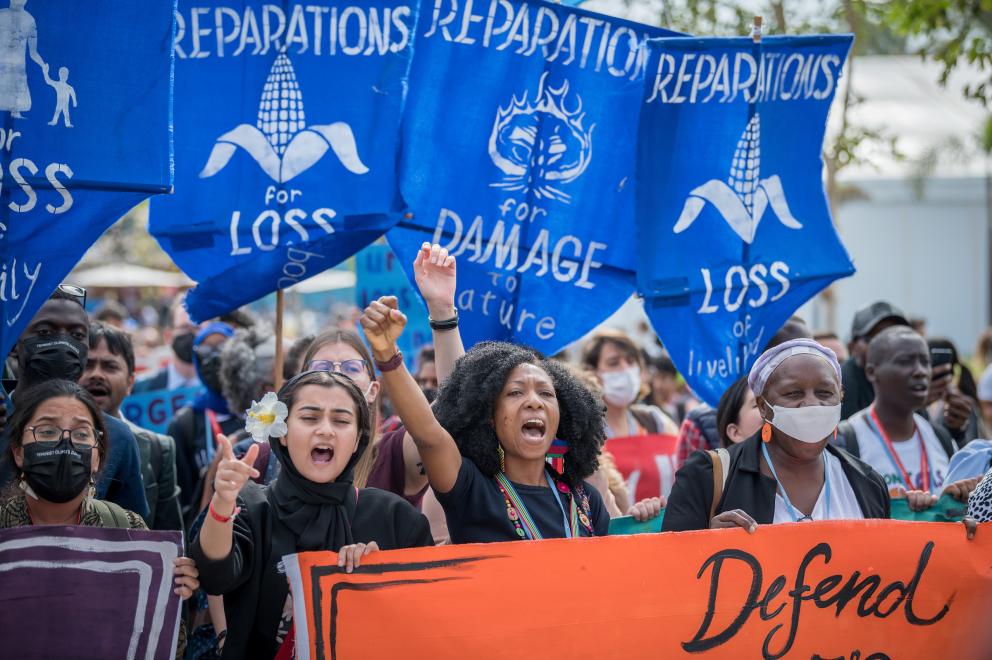
The event explored the role of global tax justice in addressing climate reparations, with leading voices from Asia, Africa, and the Americas discussing how tax systems can curb the emissions of wealthy nations and industries and raise resources to respond to climate-related loss and damage. This initiative is part of the WCC’s ongoing commitment to addressing climate injustice and advocating for vulnerable communities.
Rev. Sarah Bach of the Methodist Church in Switzerland and a member of WCC Commission on Climate Justice and Sustainable Development, moderated the discussion.
“The emission of wealthy countries, corporations and affluent people mainly in the global North are overwhelmingly responsible for the global climate crisis which is hurting the poorest the most,” she said. “How can taxation and tax measures address the question of who pays for climate damages?”
Bach and other speakers also addressed why this not only an ethical and moral but also a theological issue.
“The issue of tax justice has gathered a lot more attention over the last couple of years,” she noted.
Speakers then went on to discuss theological resources as well as some concrete next steps towards tax justice, particularly in the lead-up to COP29, which will take place in COP29 will take place from 11-22 November in Baku, Azerbaijan.
Chenai Mukumba of the Tax Justice Network-Africa spoke the intersection of climate change and economic justice, specifically tax justice.
“Let’s acknowledge the context: climate change is not a phenomenon that’s affecting everyone equally—it’s being felt most acutely most significantly by those who have contributed the least to this problem,” she said. “The nations that face the brunt of this particular situation—specifically rising sea levels, food insecurity, water insecurity—are the ones that are being asked to bear a burden for which they themselves are not responsible while the wealthiest countries, corporations, and individuals continue ti profit.”
Following the speakers, a question-and-answer session shed light on the intersection between wealth, climate responsibility, and reparations, and reiterated the call for urgent action through tax justice.

